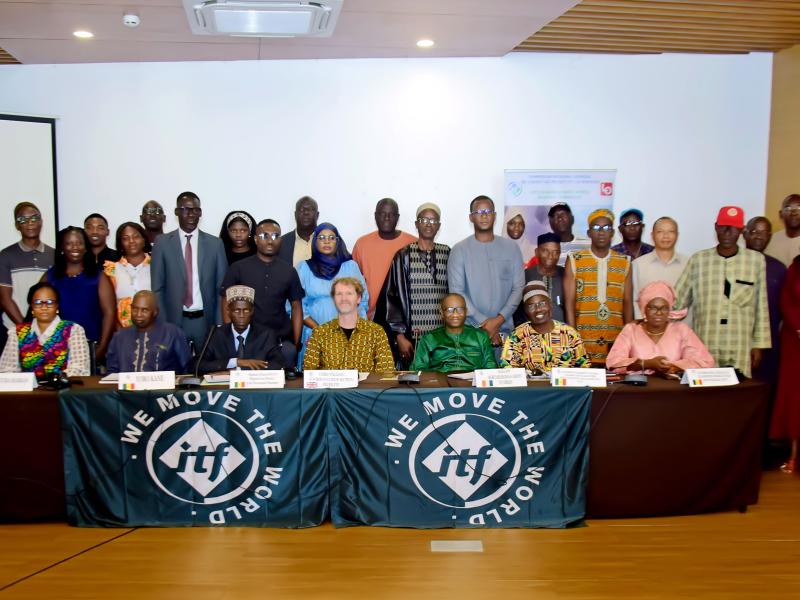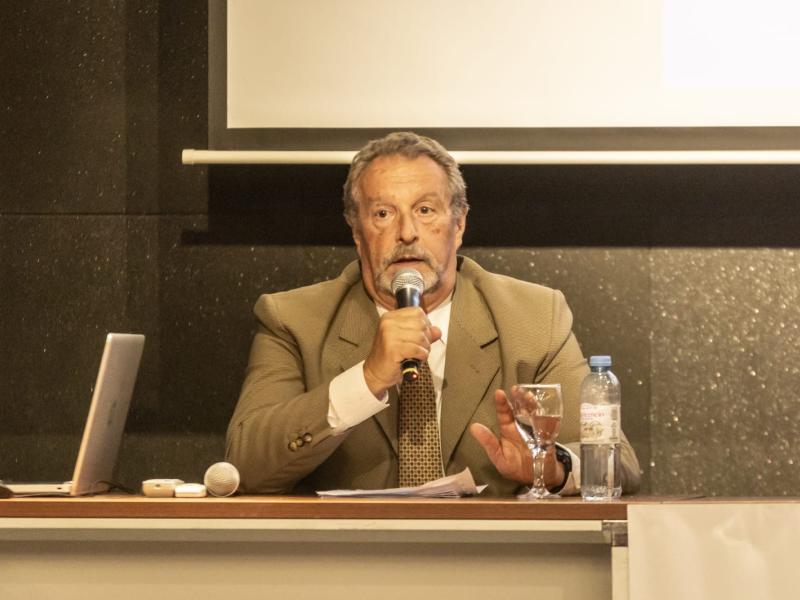ITF general secretary Stephen Cotton has delivered a clear message to the International Labour Organisation (ILO): now is the time to assert authority as the global standard-bearer for labour rights.
Speaking at the ILO’s centenary conference in Geneva, he recognised the challenges of securing the future for working people amid profound environmental, demographic and technological change. However, he said the ILO was uniquely placed to ensure minimum standards and protections are afforded to all workers, regardless of employment status.
“The ITF is committed to multilateralism, tripartism, and the work of the ILO. However, we are at a critical juncture in history. This house must recall its mandate – to achieve a world of social justice for peace and stability – and take bold decisions to make it happen," he said.
“The ILO must commit to protecting society’s most vulnerable. The right to organise and bargain collectively is a fundamental right that applies to all workers.”
A key message was the need for the ILO to be strong on enforcement and ensure violations do not go unpunished.
Supervision of international labour standards
The Committee on Application of Standards (CAS) is the ILO body charged with examining cases of major violations of international labour law, and the ITF played a major role on behalf of transport workers. Cases included violations of ILO convention 87 (freedom of association and protection of the right to organise) in Turkey and in the Philippines.
The ITF reported affiliates’ experiences of harassment, intimidation and fear, as the CAS heard evidence of violence against trade unionists, imprisonments and undermining of fundamental rights. Both governments have to report back to the ILO’s committee of experts so the ILO can monitor progress.
An ILO centenary declaration for the future of work
As well as achieving a historic international standard on violence and harassment in the world of work, the ILO agreed a centenary declaration designed to give all workers a floor of rights and protections in an ever-changing world of work. The declaration addresses some key issues for transport workers, and gives trade unions a foundation to fight for a fair, equitable and democratic future of work.
Critical parts of the declaration include:
- recognising safe and healthy working conditions are fundamental to decent work
- the need for cross-border action to secure workers’ rights in supply chains
- policies and measures that ensure appropriate privacy and personal data protection, and respond to challenges and opportunities in the world of work relating to the digital transformation of work, including platform work
- the importance of promoting quality public services
ILO declarations set the vision for the organisation. It is the tripartite constituents, including trade unions, which ensure decisions have an impact. Reaffirming the ITF’s commitment to the process, Mr Cotton said: "Universal ratification of core conventions must be achieved. And declarations must be supplemented by action plans to ensure outcomes are implemented. Where they’re not, steps must be taken.
"Working people must believe we are serious. Trust and understanding in the tripartite system is the bedrock of the social contract - a contract to which we will continue to hold employers and governments to account.”




